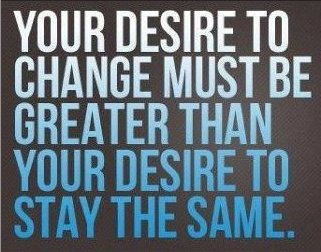People throw out the word ‘transformation’ way too much, making it little more than jargon. Even me, at times. But it’s a lot easier to talk about transformation than it is to actually do it. That holds true in business, and also in our personal lives.
After all, a transformation is a complete or major change. Why would anyone think that would be easy? Because it’s not–transformation is hard. Very hard.

Business Transformation
Sometimes, a new CEO swaggers in and brags, “We’ll transform the company in two years.” But after task forces, call-to-action meetings, and firing 20% of the workforce, the beleaguered employees have chosen to hunker down rather than be transformed, and market share still lags.
In frustration, failure is politically ignored, and chart decks are created showing that progress may have actually been made. And the latest attempt at transformation lapses into history with little real change having been accomplished.
“The success rate of major corporate change programs remains essentially unchanged — it still hovers at 30%.” (Ron Ashkenas, Harvard Business Review)
Why do so many business reengineering efforts fail?
Sometimes, it’s because executives don’t understand what the real problems are. Or, if they do, they think the issues too daunting to overcome, much less to make into public objectives. Because that would get it all out there and let the world know how messed up things actually are.
Therefore, many transformations are doomed to failure because companies are not prepared, or not willing, to do the hard work necessary for lasting change.
Personal Transformation
It’s hard to let go of old ways, even if they are harmful ways. For a business, and for us.
Alcoholics know this all too well. Often, they remain locked in self-destructive habits far longer than sanity can comprehend. In fact, those who are struggling with substance abuse probably understand this better than anyone.

More than those with politically correct bad habits such as workaholism, over-spending, excessive anger, people-pleasing, (and the list goes on and on) who don’t even grasp their need to change.
Perhaps the least informed are those yet to develop a personal relationship with God. They are in a difficult position because they don’t know what they don’t know. When they finally get a glimpse of what it is that they don’t know, they are often so frightened of letting go of their old self–even their bad self–that they prefer to remain imprisoned in their too-comfortable ways.
Transformation, real transformation, means humbly admitting our mistakes and trying to make positive changes in our lives. This involves a level of self-examination that can be painful at times. And it includes humbly admitting our issues to others. Especially God.
“Do not conform any longer to the pattern of this world, but be transformed by the renewing of your mind.” (Romans 12:2)
We need to anticipate how hard transformation can be.
Because it’s better that we know it will be difficult. It may take us longer to get started, but we will be better prepared for what it will take. And more likely to stick with it through the tough times.
Transformation is hard, but worth it. That is something you have to grasp for yourself rather than having it told to you. For those who are seeking a positive change, I truly hope and pray you find it.
Question: In what area of your life do you feel you need transformation?
Action: Take the first step: pick one issue, even a small one, and admit it to someone else.
Share this article on:
